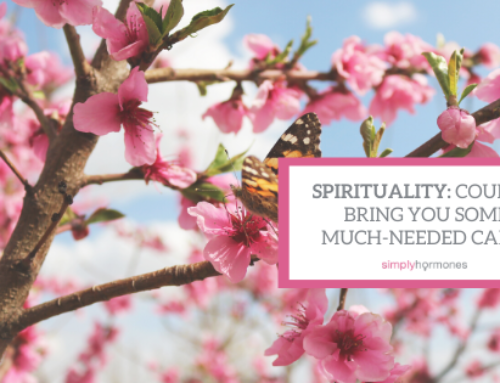Menopause is one of those words that’s just around. It’s in the vocabulary, but as we get older, see changes in others or maybe tackle some tricky issues in the workplace, menopause enters our orbit to a much greater extent. 
If you’re still on the fringes of the menopause, perhaps dealing with it second hand through a relative, partner or co-worker, then you may find it useful to get some background information.
There are loads of resources around, in fact we could say too many, but one that I have always found reliable and straight forward is www.menopausematters.co.uk. If you’re dealing with the symptoms of the menopause right now then I am sure that you have all read about and even studied menopause yourselves to get to grips with all the symptoms that you might be struggling with right now. Do your research and get to know your body. I did years of research which lead me to want to talk about it and to help people understand and accept that Menopause is a natural phase of our lives and we will come out of Menopause stronger women.
All women experience the menopause and natural menopause takes place when the ovaries become unable to produce the hormones estrogen and progesterone. There is a rapid decline usually from the age of 40 onwards. Menopause may also happen when the ovaries are damaged by treatment such as chemotherapy or radiotherapy, or when the ovaries are removed during hysterectomy. The resulting low, and changing levels of ovarian hormones, particularly estrogen, are thought to be the cause of menopausal symptoms.
 Just to give you an idea about when Menopause happens, the average age of a natural menopause is 51 years, however, it can occur much earlier or later. Menopause occurring before the age of 45 is called early menopause and before the age of 40 is premature menopause.
Just to give you an idea about when Menopause happens, the average age of a natural menopause is 51 years, however, it can occur much earlier or later. Menopause occurring before the age of 45 is called early menopause and before the age of 40 is premature menopause.
Menopause means the last menstrual period. Periods stop because the low levels of estrogen and progesterone do not stimulate the lining of the womb (endometrium) in the normal cycle. Hormone levels can fluctuate for several years before eventually becoming so low that the endometrium stays thin and does not bleed.
Perimenopause is the stage from the beginning of menopausal symptoms to the postmenopause.
Postmenopause is the time following the last period, and is usually defined as more than 12 months with no periods in someone with intact ovaries, or immediately following surgery if the ovaries have been removed.
Menopause – when?
Generally, women having an early or premature menopause are advised to take HRT until approximately the average age of the menopause, for both symptom control and bone protective effect.
Late menopause may also occur but by the age of 54, 80% of women will have stopped having periods.
I would personally like to say though that many of my friends and colleagues have had different experiences relating to when their menopause actually starts. I have one friend who did not have a period for 10 months and her hot flushes started. She thought that she was going through menopause but then her periods started again for 3 months and then stopped again. The hot flushes returned. She now does not know where she is in her menopausal adventure.
It would be lovely to hear of your menopausal journey and where you are on it. Have you followed the steps as above? Please send me your comments.






Leave A Comment